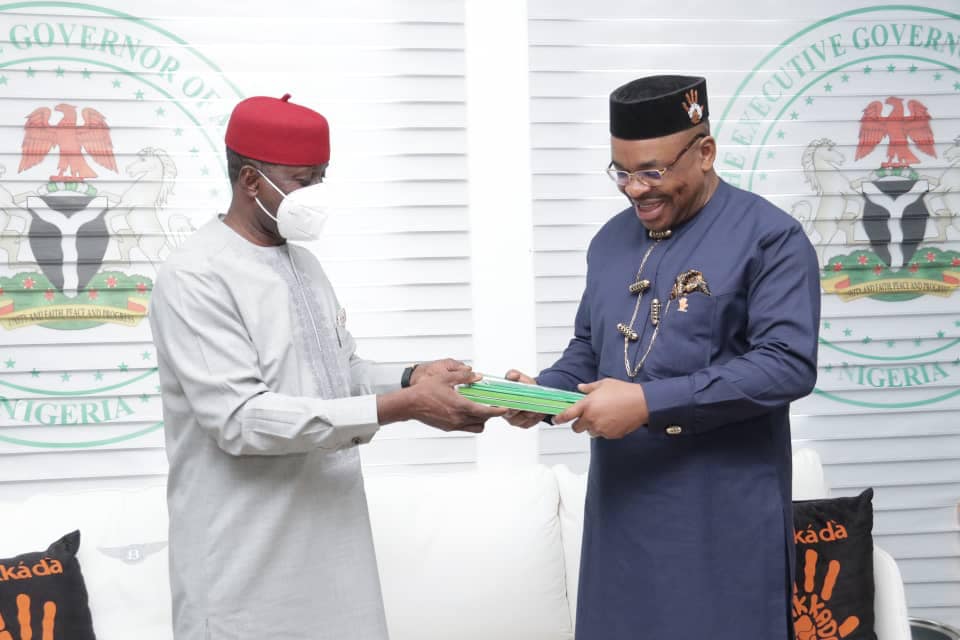Business
Ibom Air To Get 10 Additional Aircrafts Soon – Gov

Ibom Air will soon get 10 additional aircrafts to its fleet, Governor Udom Emmanuel of Akwa Ibom State has assured.
The governor revealed the plan at the weekend while speaking at an event marking the 85th birthday of the Paramount Ruler of Eket in Eket Local Government Area of Akwa Ibom, Obong Etim Abia.
According to him, the state is planning to add ten A220-300 series aircraft to the fleet of Ibom Air.
“As I am leaving here, we are signing fresh agreements that will give us 10 brand new A220-300 Air Buses, so that even when I leave office, it will remain an enduring legacy”, he said.
He also gave assurance on other projects in the state, saying he would ensure that quality is not compromised.
He appealed for patience from Eket residents while reassuring them that all the projects would be delivered and appreciated long after his tenure.
Emmanuel noted with regrets that climate and weather conditions, the COVID-19 pandemic and other natural occurrences had impacted the pace of work in the state.
Some of the projects affected include the Eket Stadium project, the International Market project, roads and other development programmes in the area.
Transport
Automated Points Concession : FAAN Workers Gave 72hrs To Revise Decisions In PH

Transport
FAAN Announces Pick-Up Points for Go-Cashless Cards

Business
Fidelity Bank To Empower Women With Sustainable Entrepreneurship Skills, HAP2.0
-

 News4 days ago
News4 days agoAmend Constitution To Accommodate State Police, Tinubu Tells Senators
-

 Politics4 days ago
Politics4 days agoSenate Urges Tinubu To Sack CAC Boss
-
Business4 days ago
Crisis Response: EU-project Delivers New Vet. Clinic To Katsina Govt.
-
Business4 days ago
President Tinubu Approves Extension Ban On Raw Shea Nut Export
-

 News4 days ago
News4 days agoDisu Takes Over As New IGP …Declares Total War On Corruption, Impunity
-
Business4 days ago
Fidelity Bank To Empower Women With Sustainable Entrepreneurship Skills, HAP2.0
-
Business4 days ago
President Tinubu Extends Raw Shea Nuts Export Ban To 2027
-
Sports4 days ago
NDG: Rivers Coach Appeal To NDDC In Talent Discovery

